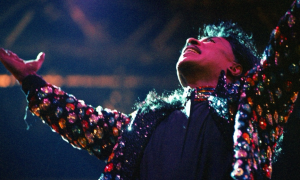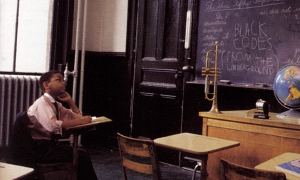Home » Jazz Articles » Opinion » Can You Judge an Album By Its Label?
Can You Judge an Album By Its Label?
For almost as long as there have been record labels, many labels have sought to build a reputation or a brand identity for themselves in terms of the genre of music presented on their labels or the technical quality of their product. Some of the largest and longest-running labels, such as Columbia, RCA, and Warner Brothers, have taken a "big tent" approach in which major artists across the musical spectrum have all appeared on the same label; so while consumers could not know for sure what type of music would be contained on an album on one of these labels, they could at least know that the performer and the performance was deemed to be of sufficient quality and market appeal that the album could be reasonably expected to sell well. While the majors can be accused of making their artist roster decisions based more on the bottom line than on the preservation and advancement of the art form, they also have the established distribution channels and the promotional resources to improve the chances of an album's success.
Smaller independent labels are much more likely to cater to a narrower bandwidth of musical tastes. These labels are often started by producers, jazz-loving record execs or other business people, or even the artists themselves. Sometimes they retain their independent status, and in other cases they are either bought by one of the major record conglomerates or they sign distribution deals with one of the majors. Some large and medium size labels spin off sub-labels to differentiate the various genres in their catalogs, providing the consumer with a clearer idea of what to expect.
Since this column focuses mainly on contemporary jazz (and I wish to keep it to a managable, readable length), I'll highlight some of the more notable past and present contemporary jazz labels. I'm sure I'll leave many fine labels out, but these few have consistently put out good-quality CDs, and I have been known to buy a new artist solely by the endorsement of being on one of these labels. I've been rarely disappointed.
CTI Records
One of the most remarkable labels in contemporary jazz history was producer Creed Taylor's CTI Records. Creed Taylor was already a well-established producer, having produced many fine recordings throughout the sixties for Verve and A&M. CTI's heyday was the early to mid seventies, and the label was innovative and revolutionary in numerous ways. Taylor created albums with a mostly tasteful blend of traditional jazz structures and more pop-accessible arrangements. The albums were packaged in double gatefold jackets (instead of a single cardboard sleeve, there was a second sheet of cardboard hinged on the left, so the album jacket opened like a book) with glossy, artsy abstract photography, creating a classy, extravagant look. Best of all were the artists on the roster, who often played on each others' albums: Hubert Laws, George Benson, Grover Washington, Jr., Bob James, Freddie Hubbard, Stanley Turrentine, Joe Farrell, Deodato, and Airto Moreira were all in very fertile periods of their careers while on the CTI label. CTI also embraced the quadraphonic technology during its brief bid for consumer acceptance. Alas, CTI ran out of gas and went bankrupt by the end of the seventies. Most of their catalog was acquired by CBS and subsequently released on CD.GRP Records
GRP (originally standing for Grusin/Rosen Productions) enjoyed a similar reputation as the premiere contemporary jazz label throughout the eighties and the first half of the nineties. Formed by keyboardist/composer/arranger/producer Dave Grusin and producer/engineer/businessman/drummer Larry Rosen, GRP quickly earned a reputation for consistently high quality talent, arrangements, and production. GRP also strived to be on the cutting edge of technology, embracing digital mastering early on, as well as DAT and performance videos. While an independent label, GRP split its roster between established, well-selling talent such as Grusin, Lee Ritenour, Gary Burton, Tom Scott and Chick Corea; and up-and-coming (now well-established) talent such as Diane Schuur, Kevin Eubanks, Nelson Rangell, the Rippingtons, and David Benoit. But ultimately, GRP was sold to giant MCA, whose focus was more on the bottom line and less on development of new talent, and most of its impressive stable of contemporary jazz artists were either dropped or left the label when their contracts expired.DMP
Another label which has developed a reputation as a technology leader in superior audio quality (thanks to their total commitment to the digital medium in the early eighties as well as superior microphone technology and placement) is DMP, or Digital Music Products. The music made by the artists on the label was consistently high quality as well, but DMP has never had much success making it onto the airwaves. Most of it is too contemporary for traditionalists, and not "smooth" enough for the lite jazz stations. Two of their most prolific artists are Flim and the BB's (one of my very favorite bands, with a quirky personality all their own) and the PPBob Mintzer}} Big Band, one of the foremost modern big bands playing today. Guitarists Thom Rotella, Chuck Loeb, and Joe Beck, as well as keyboardists Warren Bernhardt, Manfredo Fest, and Andy LaVerne, have released excellent CDs on DMP.Concord Jazz
Concord Jazz was founded by Carl Jefferson in the early eighties as an offshoot to the Concord (CA) Jazz Festival. It quickly developed as a haven for west coast cool/traditional jazz, usually in small combo format. Most of the roster was high-calibre talent, but there were only a few household names, such as Mel Torme, Rosemary Clooney, and Marian McPartland. In more recent years, the label has subdivided into several sub-labels: Concord Picante (latin), Concord Concerto (classical) and the new Concord Vista (contemporary). Plus, there's Jazz Alliance (reissues, plus CD transcriptions of Marian McPartland's popular Piano Jazz series), and Chick Corea's Stretch Records. Even the focus of the mail label has broadened considerably; the Rob McConnell and the Boss Brass and Maynard Ferguson now grace the label as well as several former GRP artists. I certainly haven't heard all of their hundreds of recordings, but I have yet to hear one that wasn't high-quality, tasteful work.Heads Up
Heads Up boasts some fine developing talent, such as harpist Roberto Perera, pianist Joe McBride, saxophonist Kenny Blake, and bassist Gerald Veasley, as well as some more established talent like Andy Narell, Paquito D'Rivera, and a couple CDs by Richie Cole. Heads Up is also one of the current technology leaders with their Enhanced CDs. In addition to the regular audio program that you play in your CD player, each disc released over the past couple years can also be inserted in your PC or Mac, where you can see a video clip, read biographical information about the artist, view the Heads Up music and merchandise catalog, and hear sound samples from previous releases by the featured artist and other Heads Up new releases.N2K Encoded Music
N2K Encoded Music is similarly embracing the multi-media approach. This label is the combined forces of Larry Rosen (formerly of GRP) and legendary producer Phil Ramone, who has impressive credits in both the jazz and rock worlds. The label has already attracted Dave Grusin (no surprise), Arturo Sandoval, Jonathan Butler, and other considerable talents.Telarc Music
Like DMP, Telarc has earned a reputation for maximizing the capabilities of digital technology to produce sonically outstanding recordings which also happen to be high quality music. While originally founded as a classical label, Telarc created the sub-label Telarc Jazz, which features some of jazz's master talents such as Oscar Peterson, Ray Brown, Joe Pass, George Shearing, and Dave Brubeck. There's also Telarc Blues. They've recently spun off Telarc Jazz Zone, devoted to more contemporary recordings.Zebra Music
Zebra Records, after a stint as a subsidiary of MCA in the late eighties, was reformed a couple years ago, and has released a remarkably consistent line of contemporary jazz CDs by the likes of bassist Brian Bromberg, keyboardists Jeff Lorber, Joe Zawinul, and Rob Mullins, and the enigmatically titled rock-jazz quartet Jazz Is Dead. They've already spun off the aptly named Zebra Acoustic.< Previous
Two-Trumpet Cacophony
Comments
Tags
Opinion
Dave Hughes
Hubert Laws
george benson
Grover Washington, Jr.
Bob James
Freddie Hubbard
Stanley Turrentine
Joe Farrell
Deodato
Airto
Dave Grusin
Lee Ritenour
Gary Burton
Tom Scott
Chick Corea
Diane Schuur
Kevin Eubanks
Nelson Rangell
David Benoit
Flim and the BBs
Thom Rotella
Chuck Loeb
Joe Beck
Warren Bernhardt
Manfredo Fest
Andy LaVerne
Mel Torme
Rosemary Clooney
Marian McPartland
Rob McConnell
Maynard Ferguson
Roberto Perera
Joe McBride
Kenny Blake
Gerald Veasley
Andy Narell
Paquito D'Rivera
Richie Cole
arturo sandoval
Jonathan Butler
oscar peterson
Ray Brown
Joe Pass
George Shearing
Dave Brubeck
Brian Bromberg
Jeff Lorber
Joe Zawinul
Rob Mullins
Jazz is Dead
For the Love of Jazz
 All About Jazz has been a pillar of jazz since 1995, championing it as an art form and, more importantly, supporting the musicians who create it. Our enduring commitment has made "AAJ" one of the most culturally important websites of its kind, read by hundreds of thousands of fans, musicians and industry figures every month.
All About Jazz has been a pillar of jazz since 1995, championing it as an art form and, more importantly, supporting the musicians who create it. Our enduring commitment has made "AAJ" one of the most culturally important websites of its kind, read by hundreds of thousands of fans, musicians and industry figures every month.





















